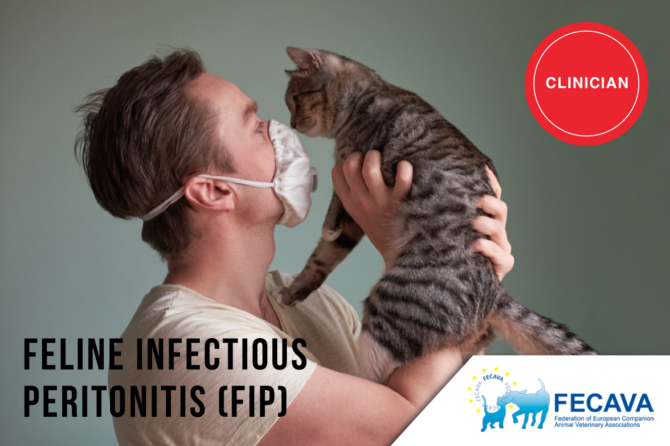
Feline Infectious Peritonitis (FIP)
Feline Infectious Peritonitis (FIP) is a highly fatal immune-mediated vasculitis in cats, caused by feline coronavirus (FCoV). FIP develops in about 10% of cats, infected with FCoV, which normally causes only mild enteric infection, and the pathogenesis of this is still poorly understood. Due to this fact and its high mortality rate, FIP poses great challenges to veterinarians and is a matter of constant research.
A recent study has been published on the contribution of non-immune organs – liver and heart – to the pathogenesis of FIP. The liver and heart have the ability to produce cytokines and therefore have a potential to exacerbate inflammatory processes.
The ABCD (European Advisory Board on Cat Diseases) Guidelines on Feline Infectious Peritonitis have been completely revised and published in May 2019, considering recent research findings related to diagnosis and management.
A Review of the Current Literature regarding Diagnosis of Feline Infectious Peritonitis can be helpful in making the definitive diagnosis of FIP. With the overview of available direct and indirect diagnostic tests and their sensitivity and specificity, this review can help facilitate the interpretation of different tests and raise awareness of their advantages and limitations.
The recommendations for the treatment of FIP have been changing a lot, and a promising therapy with the nucleoside analog GS-441524 is researched at U.C. Davis by dr. Niels Pedersen. Nucleoside analogues function by replacing adenosine and consequently terminating replication of the RNA virus genome. As presented in the study using oral Mutian X, the drug also appears to terminate the shedding of the virus from naturally infected cats. Interestingly, a similar human drug (GS-5734 – Remdesivir) could be a potential treatment for COVID-19.
More about FIP at catvirus.com
Leave a reply

Leave a reply